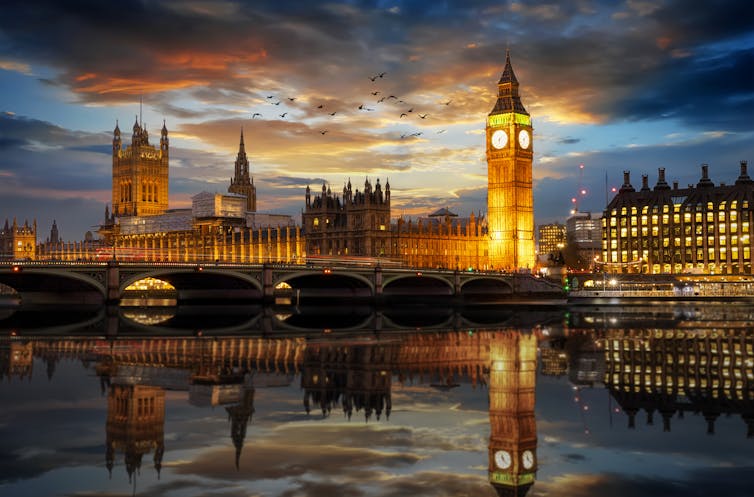COVID bailouts helped politically connected businesses more than others – new research
COVID has been a shateringly expensive ordeal for nations across the world. Aside from the medical cost of vaccines, testing and treatment, economic aid for escape schemes and sector bailouts dealt a serious blow to public finances.
Nations responded by distributing vast amounts of money which are unlikely to be recouped. The UK alone spent £261 billion across different relief schemes, which £15 billion is certainly expected to be lost because of fraud and errors.
While the government can make a convincing case for the huge amounts spent over the course of the pandemic so far, it is worth having a closer look at where a few of the money has gone.
Our research reveals that when this came to financial assistance by the government, some businesses were much more likely than others to receive this. These included firms with political connections, and those owned by large and influential shareholders.
We uncovered this by looking at a small sample of publicly listed UK firms and examining their political connections using a selection of databases. We found that will companies with powerful majority shareholders or with politics links (a politician member of the board, for example), had a higher likelihood of getting bailed out. This suggests that some firms were able to power their political capital to get a competitive advantage.
For its part, the government necessary to ensure that recipients of general public funds used them for his or her intended purposes such as continuing to pay suppliers, employees and lenders. This was admittedly a difficult task given all the needs thrown up by the pandemic.
But the fact that so much will be written off in fraudulent claims or additional kinds of losses shows deficiencies in due diligence and monitoring. The research suggests a further element of crony capitalism whereby public funds were directed towards private interests.
1 recent accusation of cronyism was levelled at Greensill Funds , the bankrupt financial company which received access to government emergency COVID loans. Greensill paid the former UNITED KINGDOM prime minister, David Cameron, a salary of more than $1 million (£767, 000) a year for a part-time plank role . Cameron stated he was not motivated by personal gain, but as they thought the company “had an excellent idea for how to help extend credit to thousands of businesses”.
Our research also available that bailouts were frequently given to firms with high amounts of debt and reduced cash reserves – companies which potentially may have gone bust without government assistance.
After accepting tax payer funds presumably given to help them survive, a few then went on to pay nice dividends to their shareholders plus bonus deals to their directors .

Somewhere else, some companies belonging to big international corporate groups benefited from a publicly funded chance to get cheap, short-term financial loans, while their contribution or even commitment to the UK economic climate was questionable. For instance, BASF, a German chemical group, received the biggest single pay out (£1 billion), but has closed its UK plant and is moving the job to France. BASF reports it will be repaying the mortgage.
Power to the political figures
The pandemic then, saw the UK government, like others, take on a far more proactive role in financing the business world. It provided vast money, paid salaries, and spent a fortune trying to fill economic holes.
This form of capitalism, known as “state capitalism”, involves governments assuming the particular role of an “ active economic real estate agent ”. It significantly expands the state’s part as promoter, supervisor plus owner of capital, along with far greater control over the economy.
Other forms of capitalism, characterised by market supremacy and lighter regulation, or a higher input from business, have got, for the moment at least, been pushed aside.
As a result, the UK, the fifth largest economy in the world, has a budget deficit rising in order to its highest ever peacetime level: £323 billion, or even 15% of GDP. The particular pandemic has made the UK’s version of state capitalism far more visible and comprehensive – bringing far greater financial power (and responsibility) towards the people who run the government.
COVID bailouts helped politically connected businesses more than others – new research
Source: Article Updates PH

Mag-post ng isang Komento
0 Mga Komento